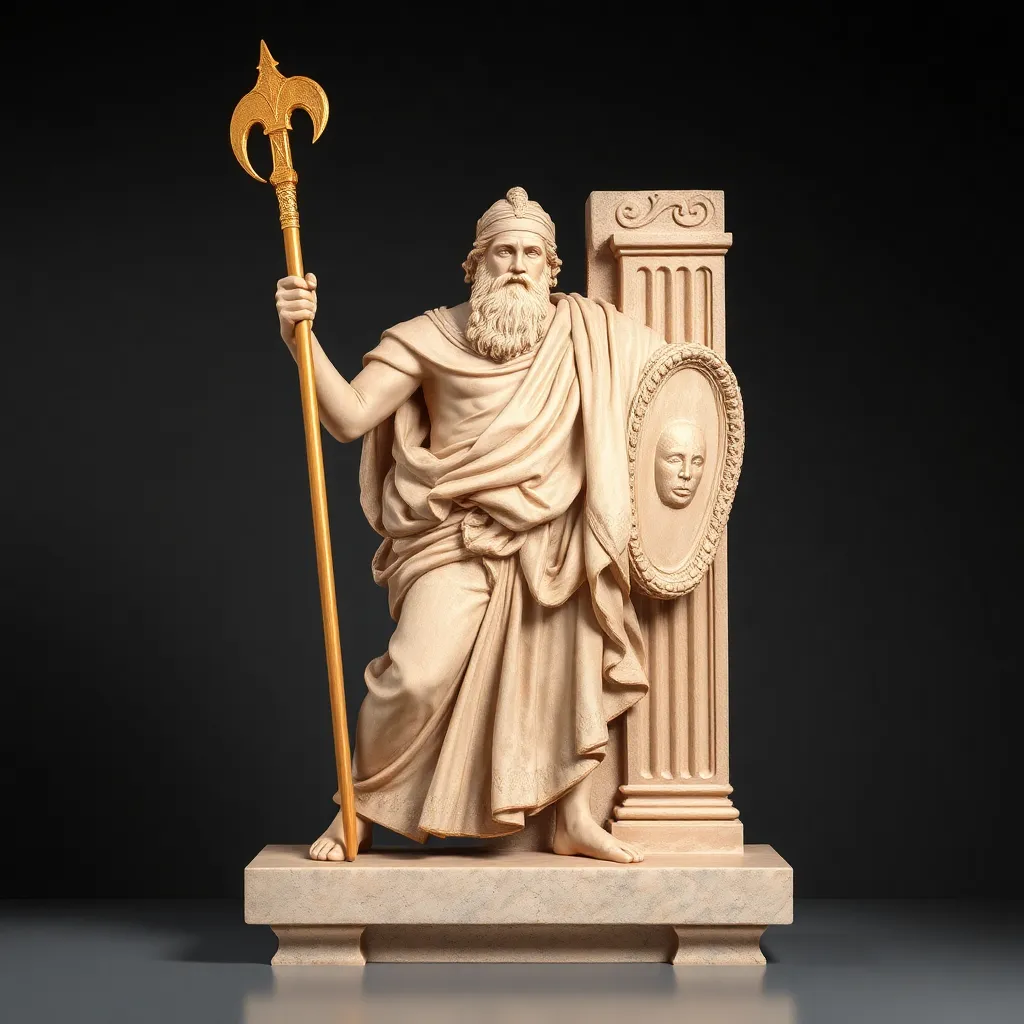Odysseus and the Concept of Honor in Ancient Greece
I. Introduction
In ancient Greek culture, honor, or timē, was a paramount value that shaped social interactions and personal identity. It was not merely a personal trait but a social currency that dictated one’s status and reputation within the community. The epic hero Odysseus, a central figure in Greek mythology, embodies this concept of honor through his complex character and profound journey. This article aims to explore the interplay between Odysseus and the concept of honor, examining how this value influenced his actions and relationships throughout the “Odyssey.”
II. The Role of Honor in Ancient Greek Society
Honor was fundamental to ancient Greek society, serving as a measure of an individual’s worth and societal standing. Its significance can be outlined as follows:
- Importance of Honor (timē): Honor was closely linked to one’s reputation, often determined by actions in both personal and public spheres.
- Relationship Between Honor and Personal Identity: An individual’s honor was integral to their identity, often influencing their choices and social interactions.
- Honor in Warfare and Heroism: Acts of bravery and valor in battle were crucial for gaining honor, elevating individuals to heroic status in the eyes of their peers.
III. Odysseus: The Epic Hero
Odysseus, the son of Laertes, is best known for his ten-year journey home after the Trojan War, as chronicled in Homer’s “Odyssey.” His character is defined by several key traits:
- Cunning and Intelligence: Odysseus is renowned for his cleverness, often using his wits to overcome challenges.
- Bravery: He demonstrates courage not only in battle but also in facing formidable trials during his journey.
- Leadership: As the leader of his men, Odysseus’s decisions significantly impacted their fate.
Honor serves as a driving force in Odysseus’s adventures, guiding his actions as he navigates the trials set before him, including encounters with mythical creatures and divine beings.
IV. Honor and Deception: Odysseus’s Use of Cunning
Odysseus’s strategic use of deception, known as metis, illustrates the complexity of honor in his character. This cunning often creates tension between traditional notions of honor and the practical necessities of survival:
- Strategic Deception: Odysseus frequently employs deceit to achieve honorable ends, such as when he disguises himself to infiltrate enemy territory.
- Tension Between Cunning and Honor: While some may view his cunning as dishonorable, it is often portrayed as a necessary trait for a hero.
- Examples from the “Odyssey”: Instances like the Trojan Horse and his encounter with the Cyclops highlight how deception can serve a greater honorable purpose.
V. The Consequences of Honor
The pursuit of honor significantly impacts Odysseus’s relationships and decisions throughout the “Odyssey.” Some consequences include:
- Impact on Relationships: His quest for honor often strains relationships, particularly with his men and family.
- Shaping Decisions and Actions: Odysseus’s choices are frequently influenced by the desire to maintain or regain his honor.
- Sacrifices Made: The pursuit of honor requires sacrifices, including personal desires and the well-being of others.
VI. Female Perspectives on Honor: Penelope and Others
Penelope, Odysseus’s wife, offers a unique perspective on the concept of honor. Her understanding of honor is shaped by her loyalty and patience:
- Penelope’s Role: She embodies a different facet of honor, demonstrating fidelity and intelligence in her own right.
- Portrayal of Female Characters: Other female characters, such as Athena and Circe, also navigate the complexities of honor, often challenging traditional male-centric views.
- Interplay of Male and Female Concepts of Honor: The contrasting views highlight how honor is perceived differently across genders in the epic.
VII. Honor in the Context of Fate and the Gods
The influence of divine will complicates human notions of honor in the “Odyssey.” Key points include:
- Divine Influence: The gods frequently intervene in human affairs, shaping the outcomes of honor-related pursuits.
- Struggle Against Fate: Odysseus’s journey reflects a tension between striving for honor and the inevitability of fate.
- Honor and Piety: Adhering to the will of the gods is viewed as a fundamental aspect of maintaining one’s honor in ancient Greek culture.
VIII. Conclusion
This exploration of Odysseus and the concept of honor reveals the intricate ways in which honor influenced his character and actions. From his cunning strategies to the sacrifices made for honor, Odysseus embodies the complexities of this value in ancient Greek society. The enduring legacy of honor in Greek literature continues to resonate in contemporary discussions of ethics and morality, inviting reflection on the nature of honor in our own lives.




